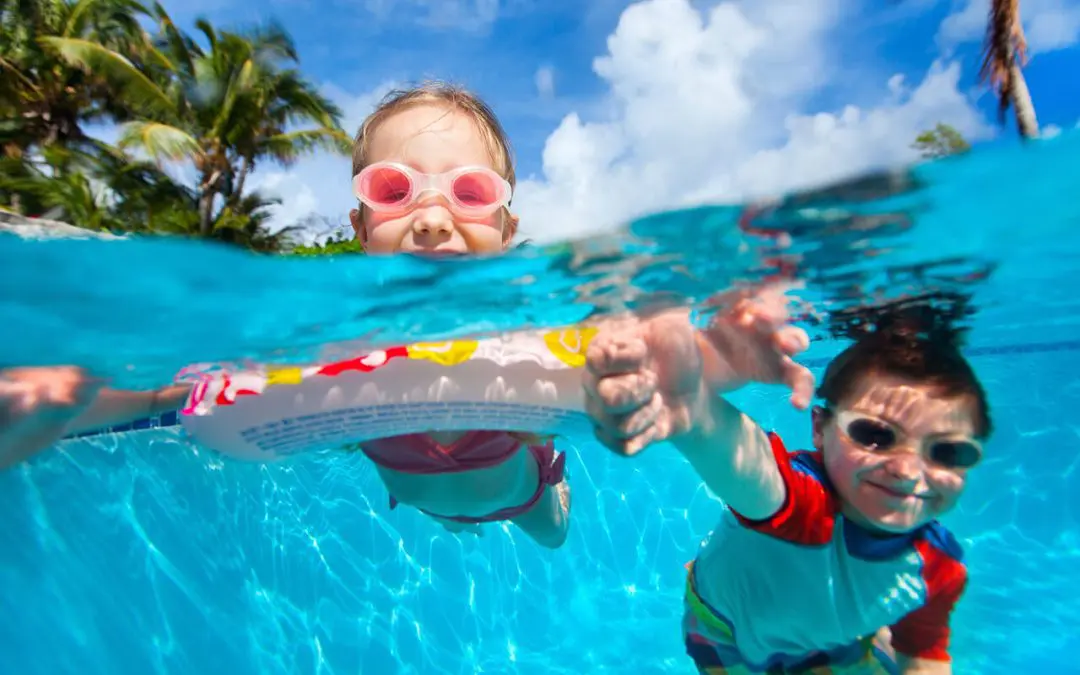As temperatures rise and the sun beckons us outdoors, there’s nothing quite like a refreshing dip in a swimming pool. Whether it’s a backyard oasis or a community center hub, a well-maintained pool offers respite from the heat and a source of joy for swimmers of all ages. However, keeping your pool pristine requires regular maintenance and care. In this guide, we’ll explore the essential steps for swimming pool maintenance to ensure your pool remains sparkling clean throughout the summer months and beyond.
1. Skim and Scrub During Swimming Pool Maintenance
The first rule of pool maintenance is to keep it clean. Skim the surface daily to remove leaves, insects, and other debris that can accumulate overnight. Invest in a sturdy pool brush to scrub the walls and floor, preventing algae and grime buildup. Regular skimming and scrubbing maintain the pool’s aesthetic appeal and promote better water circulation and filtration.
2. Balance Chemical Levels
Proper water chemistry is crucial for a safe and enjoyable swimming experience. Test the pool water regularly using a reliable kit to monitor pH levels, chlorine, alkalinity, and calcium hardness. Adjust these levels as needed to ensure optimal balance:
– pH: Aim for a range of 7.2 to 7.6 to prevent skin and eye irritation and protect pool equipment.
– Chlorine: Maintain a chlorine level of 1.0 to 3.0 parts per million (ppm) to kill bacteria and algae.
– Alkalinity: Keep alkalinity between 80 and 120 ppm to stabilize pH levels and prevent corrosion.
– Calcium Hardness: Maintain calcium hardness between 200 and 400 ppm to prevent plaster etching and equipment damage.
3. Monitor Filtration System
Your pool’s filtration system is its lifeline, removing debris and contaminants to keep the water clean and clear. Inspect and clean the skimmer baskets, pump strainer, and filter regularly to ensure optimal performance. Backwash or clean the filter according to the manufacturer’s instructions to prevent clogs and maintain efficiency. Additionally, consider upgrading to a variable-speed pump for energy savings and improved circulation.
4. Shock and Algaecide Treatments and Swimming Pool Maintenance
Even with regular maintenance, your pool may occasionally require extra care to combat algae growth and bacteria. Shock treatment, or superchlorination, involves adding a concentrated dose of chlorine to kill organic contaminants and restore water clarity quickly. Use shock treatment weekly or as needed, especially after heavy rainfall or periods of heavy use. Additionally, consider using an algaecide to prevent and control algae growth, particularly in warmer climates or poorly circulated areas.
5. Inspect and Maintain Equipment
Regularly inspecting and maintaining pool equipment prevents costly repairs and ensures uninterrupted enjoyment. Check for leaks, worn-out seals, and damaged pump, filter, heater, and plumbing system components. Lubricate o-rings and gaskets as needed and schedule professional servicing annually to keep equipment running smoothly. Proper maintenance extends the lifespan of your pool equipment and enhances overall efficiency and performance.
A well-maintained swimming pool is a source of relaxation, recreation, and enjoyment for homeowners and families alike. Following these essential maintenance tips ensures your pool remains a pristine oasis throughout the summer season and beyond. Investing time and effort into regular upkeep will pay off in the form of sparkling, crystal-clear water and countless memorable moments spent poolside.

